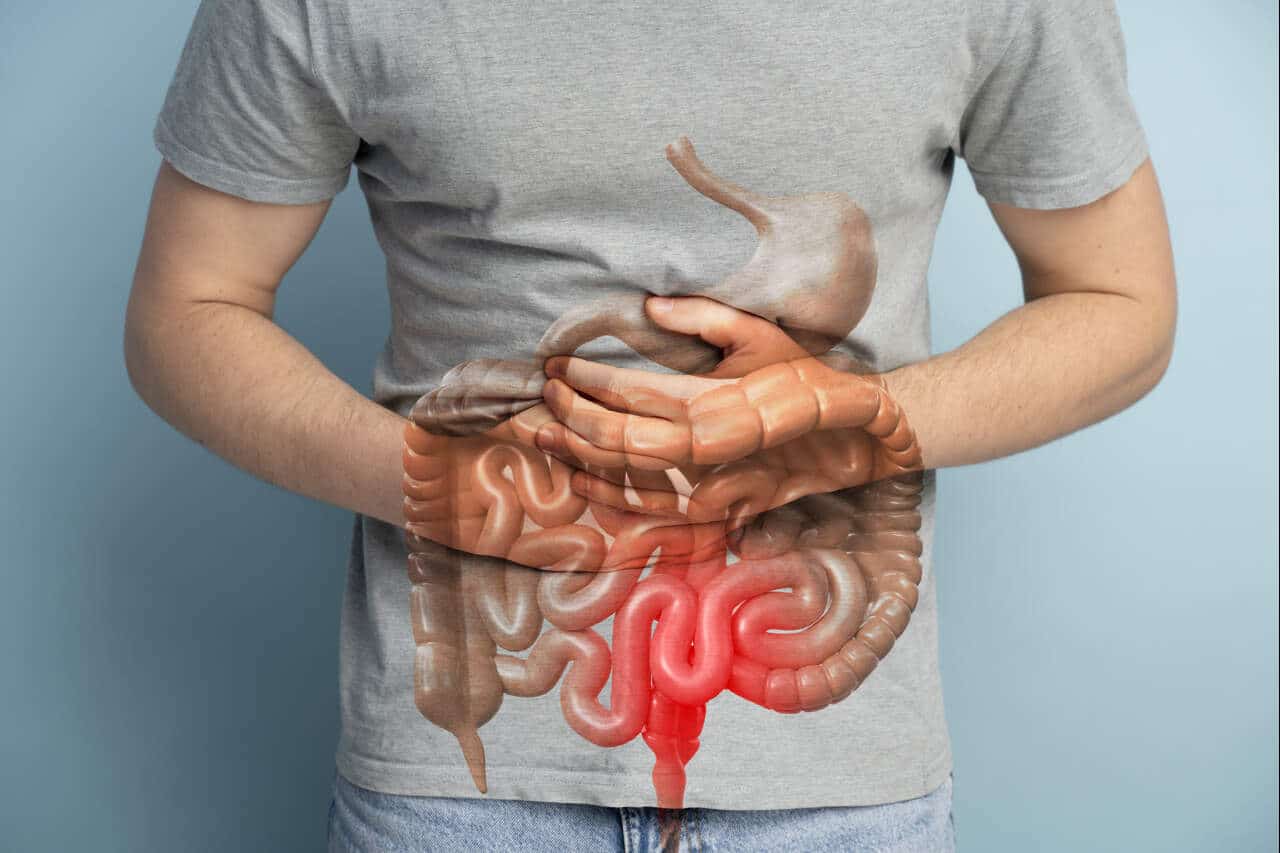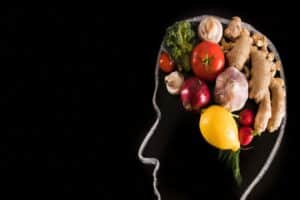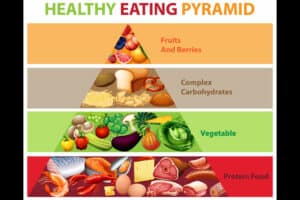Table of Contents
In pursuing a thriving and energetic life, our digestive health emerges as a silent hero, influencing our well-being profoundly. Nutrient-rich foods for digestion and gut health encapsulate our journey into understanding the magic that unfolds in our stomachs and intestines. Imagine your body as a well-oiled machine, with digestion as the engine that powers it. To nurture this vital engine, we focus on the cornerstone of a robust digestive system – nutrient-rich foods.
In this exploration, we will unravel the secrets behind digestion and gut health, simplifying the science behind the process. More importantly, we will uncover the power of specific nutrients in everyday foods – our allies in promoting optimal digestion. So, join us on this enlightening voyage as we discover the delicious and nutritious ways to support our digestive systems and pave the way for lasting health and vitality.
Understanding Digestion and Gut Health: A Comprehensive Overview
Digestion and gut health are integral components of our overall well-being, playing a crucial role in the body’s ability to extract essential nutrients, and energy, and support vital functions. This detailed exploration delves into the intricacies of digestion, the functions of the gut, and the significance of maintaining optimal gut health.
Digestion: The Marvel of Nutrient Breakdown
Digestion is a complex process that begins the moment food enters the mouth. The mechanical breakdown initiated by chewing and the chemical breakdown facilitated by saliva set the stage for further digestion in the stomach. Gastric juices containing enzymes and acids work to break down proteins, fats, and carbohydrates into smaller, absorbable components.
The journey continues in the small intestine, where bile from the liver and enzymes from the pancreas contribute to the further breakdown of nutrients. This intricate process culminates in the absorption of nutrients, including amino acids, fatty acids, vitamins, and minerals, into the bloodstream. The undigested remnants then move to the large intestine, where water absorption occurs, and the remaining waste is formed into the stool.
The Gut: A Complex Ecosystem
The gut, often referred to as the gastrointestinal tract, is a remarkable ecosystem consisting of the stomach, small intestine, large intestine, and associated organs. Each segment plays a unique role in the digestive process.
Stomach: Acts as a reservoir for food, initiating mechanical breakdown and beginning protein digestion through the release of gastric juices.
Small Intestine: The primary site for nutrient absorption, where the majority of digestion occurs. Enzymes and bile facilitate the breakdown of nutrients for absorption into the bloodstream.
Large Intestine: Responsible for water absorption and the formation of faeces. It is also home to a diverse community of microorganisms, collectively known as the gut microbiome.
Significance of a Well-Functioning Digestive System:
A well-functioning digestive system is vital for several reasons:
Nutrient Absorption: The digestive process ensures the breakdown of complex nutrients into forms that the body can absorb and utilize for energy, growth, and repair.
Energy Production: The extracted nutrients contribute to the production of energy, supporting the body’s metabolic processes and overall functionality.
Immune System Support: The gut houses a significant portion of the body’s immune cells. A healthy gut microbiome plays a key role in immune system regulation and defense against pathogens.
Microbial Balance: The gut microbiome, comprising trillions of microorganisms, maintains a delicate balance between beneficial and harmful bacteria. This balance is essential for digestive health and overall well-being.
Factors Affecting Digestion and Gut Health:
Several factors can impact the efficiency of digestion and the health of the gut:
Diet: The types of foods consumed significantly influence digestive health. A balanced diet rich in fiber, vitamins, and minerals promotes optimal functioning.
Hydration: Adequate water intake is crucial for maintaining the proper consistency of stool and supporting the digestive process.
Physical Activity: Regular exercise contributes to overall health, including the efficient functioning of the digestive system.
Stress: Psychological factors, such as stress, can influence gut health. The gut-brain axis highlights the bidirectional communication between the gut and the brain, emphasizing the impact of emotional well-being on digestive health.
Medications and Antibiotics: Certain medications, especially antibiotics, can disrupt the balance of the gut microbiome, potentially leading to digestive issues.
The Gut Microbiome: A Dynamic Community
The gut microbiome, a diverse collection of bacteria, viruses, fungi, and other microorganisms, is a dynamic and essential component of gut health. These microorganisms play a vital role in:
Digestion: Some gut bacteria assist in breaking down complex carbohydrates and fibers that the human digestive system alone cannot process.
Immune System Regulation: The gut microbiome interacts with the immune system, influencing its development and function. A balanced microbiome helps prevent inappropriate immune responses.
Metabolism: Certain bacteria in the gut contribute to the metabolism of nutrients, affecting energy balance and weight regulation.
Maintaining Gut Health: Practical Tips
Dietary Diversity: Consume a varied and balanced diet rich in fruits, vegetables, whole grains, lean proteins, and fermented foods to support a diverse gut microbiome.
Fiber Intake: Adequate fiber intake promotes regular bowel movements and supports a healthy gut microbiome. Include sources of both soluble and insoluble fiber in your diet.
Probiotics:
These live microorganisms confer health benefits when consumed in adequate amounts. Incorporating probiotic-rich foods into your diet ensures a diverse and balanced gut microbiome.
- Yogurt: Contains live cultures like Lactobacillus and Bifidobacterium, promoting gut health.
- Kefir: A fermented dairy product, kefir introduces a variety of probiotic strains for a robust gut microbiome.
Prebiotics:
Prebiotics are non-digestible fibers that nourish and support the growth of beneficial bacteria in the gut.
- Garlic: A prebiotic superstar, garlic promotes the growth of beneficial bacteria while inhibiting harmful ones.
- Bananas: Rich in inulin, bananas provide prebiotic support for a healthy gut microbiome.
Hydration: Ensure sufficient water intake to maintain the proper consistency of stool and support digestive processes.
Regular Physical Activity: Engage in regular exercise to promote overall health, including efficient digestion.
Manage Stress: Practice stress management techniques, such as meditation or yoga, to support the gut-brain axis and maintain gut health.
Nutrient-Rich Foods for Improved Digestion:
Fruits:
- Berries: Packed with fiber and antioxidants, berries aid digestion and combat inflammation.
- Bananas: Rich in potassium and prebiotics, bananas promote gut health and regulate bowel movements.
Vegetables:
- Spinach: A powerhouse of nutrients, including magnesium, spinach supports muscle function in the digestive tract.
- Broccoli: High in fiber and vitamins, broccoli aids in digestion and provides a nutrient boost.
Whole Grains:
- Quinoa: A complete protein source with fiber, quinoa supports digestive health and provides sustained energy.
- Oats: Rich in soluble fiber, oats help maintain cholesterol levels and promote a healthy gut.
Lean Proteins:
- Chicken: A lean source of protein, chicken supports muscle function, including those in the digestive system.
- Fish: Omega-3 fatty acids in fish reduce inflammation and contribute to a healthy gut.
Fermented Foods:
- Yogurt: Packed with probiotics, yogurt supports gut health and aids in nutrient absorption.
- Kimchi: A Korean staple, kimchi offers a potent dose of probiotics and prebiotics.
Vitamins and Minerals for Gut Health:
Vitamin D:
Crucial for calcium absorption, vitamin D supports muscle function in the digestive tract. Sun exposure and fatty fish like salmon are excellent sources.
B-Vitamins:
Essential for energy metabolism, B-vitamins like B6, B12, and folate are found in meat, poultry, fish, and fortified grains.
Magnesium:
This mineral assists in muscle contractions, including those in the digestive tract. Leafy greens, nuts, and whole grains are magnesium-rich options.
Zinc:
Critical for wound healing, zinc also plays a role in maintaining the integrity of the gut lining. Sources include meat, dairy, nuts, and legumes.
Conclusion:
In the intricate web of bodily functions, digestion and gut health stand as pillars of well-being. By embracing a diet rich in essential nutrients, including fiber, probiotics, prebiotics, vitamins, and minerals, we fortify our digestive system against the challenges of modern life. The key is diversity – a colorful plate reflects a diverse range of nutrients that support optimal digestion and gut health. As we navigate the culinary landscape, let’s savor not just the flavors but the nourishment that fuels our body’s intricate dance toward vitality and longevity.
FAQs
Q: What are the key nutrients essential for digestive health?
Nutrient-rich foods such as fiber, probiotics, prebiotics, vitamins, and minerals play crucial roles in promoting optimal digestive function.
Q: How does fiber contribute to gut health?
Fiber supports regular bowel movements, prevents constipation, and fosters a healthy gut microbiome by providing essential bulk to stool.
Q: What are probiotics, and why are they important for digestion?
Probiotics are beneficial bacteria that enhance gut health. They contribute to a balanced microbiome, supporting digestion and overall immune function.
Q: Can vitamins and minerals impact digestive well-being?
Yes, specific vitamins (like D and B) and minerals (such as magnesium and zinc) play key roles in maintaining a healthy gut and supporting digestive processes.
Q: How can I incorporate nutrient-rich foods into my daily diet?
Include a variety of fruits, vegetables, whole grains, lean proteins, and fermented foods for a diverse and nutrient-packed diet, promoting optimal digestion and gut health.











